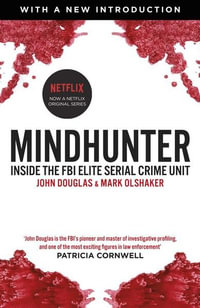A lively, up-to-date overview of the newest research in biosocial criminology
What is the relationship between criminality and biology? Nineteenth-century phrenologists insisted that criminality was innate, inherent in the offender's brain matter. While they were eventually repudiated as pseudo-scientists, today the pendulum has swung back. Both criminologists and biologists have begun to speak of a tantalizing but disturbing possibility: that criminality may be inherited as a set of genetic deficits that place one at risk to commit theft, violence, or acts of sexual deviance. But what do these new theories really assert? Are they as dangerous as their forerunners, which the Nazis and other eugenicists used to sterilize, incarcerate, and even execute thousands of supposed "born" criminals? How can we prepare for a future in which leaders may propose crime-control programs based on biology?
In this second edition of The Criminal Brain, Nicole Rafter, Chad Posick, and Michael Rocque describe early biological theories of crime and provide a lively, up-to-date overview of the newest research in biosocial criminology. New chapters introduce the theories of the latter part of the 20th century; apply and critically assess current biosocial and evolutionary theories, the developments in neuro-imaging, and recent progressions in fields such as epigenetics; and finally, provide a vision for the future of criminology and crime policy from a biosocial perspective. The book is a careful, critical examination of each research approach and conclusion. Both compiling and analyzing the body of scholarship devoted to understanding the criminal brain, this volume serves as a condensed, accessible, and contemporary exploration of biological theories of crime and their everyday relevance.
Industry Reviews
"Nicole Rafter, Chad Posick, and Michael Rocque impressively document the genealogy of biological ideas in criminology. They show that criminology must take new biological ideas seriously and contextualize sociologically both the ideas and the phenomena in which biologists engage. Publication of this second expanded edition indicates that The Criminal Brain is receiving the attention it deserves." -- Joachim J. Savelsberg,author, Representing Mass Violence: Conflicting Responses to Human Rights Violations in Darfur
"Rafter, Posick, and Rocque painstakingly document the flaws of early attempts to theorize crime from a biological perspective. By putting a nail in the coffin of the Lombrosoian legacy, they show the humanistic value and promise of the contemporary biosocial criminology paradigm. The Criminal Brain, Second Edition is required reading for all criminologists, biosocial or otherwise." -- Matt DeLisi,co-editor, The Routledge International Handbook of Biosocial Criminology
























